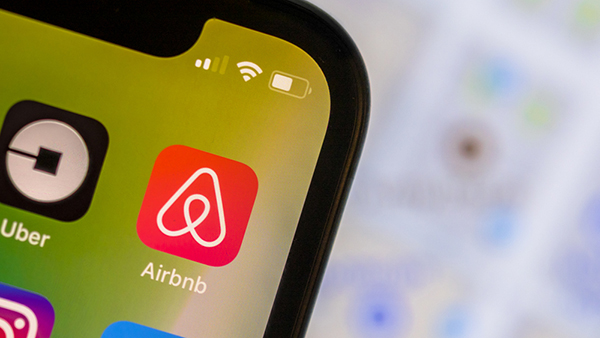Airbnb was supposed to be the hottest public offering of 2020. And it might still be.
Original plans were to start the process on March 31, but due to the COVID-19 pandemic, the company announced postponing going public. Airbnb’s valuation has dropped from $31 billion in 2017 to $18 billion during COVID, according to The Wall Street Journal. Although profit and potential for earnings are the biggest ingredients for a successful stock market launch, Airbnb still intends to file IPO paperwork this month according to a source that confirmed with CNBC.
The hospitality industry has taken a beating during the pandemic. According to the American Hotel and Lodging Association, since mid-February hotels have lost more than $46 billion, occupancy rates are at less than 35%, and 70% of hotel employees have been laid off or furloughed.
As for short-term rentals, more than 80% of bookings for the first half of April were cancelled, valued at over a billion dollars. In response, Airbnb had to cut 25% of its employment, roughly 1,900 employees, in May.
As an Airbnb host of more than a dozen properties, the first week of COVID-related cancellations hit us hard—85% occupied months dropped to 10%. Some of our Airbnb hosting whynotmeacademy.com students lost more than $25,000 in 48 hours! We feared the worst and explored bounce-back options.
Then, to our surprise, we were able to fill those calendars back up, at first with reduced rates. But by June, it was evident that domestic travel was hot and with many people avoiding air travel, many bookings were within 200 miles of their hometowns. People that wanted to avoid public locations like hotels, were becoming first-time Airbnb guests looking for more private travel than they are accustomed to. The demand became so high that we have raised our rates on all our properties to even more than pre-COVID rates.
According to an article on fortune.com, Airbnb CEO Brian Chesky said on Alan Murray and Ellen McGirt’s Leadership Next podcast, “It’s not fully recovered, but it’s recovering way faster than any one of us imagined. We are above where we were last year, and we could get even higher than what we would have forecast before COVID.”
Airbnb feels that it has gotten back to the basics and they are a stronger company. Chesky stated, “It felt like it took 12 years [. . .] to build this business, and we lost most of it in four to five weeks [. . .] we are a better company now.” The employment cutbacks and getting back to its most efficient framework have helped to lower costs, which could potentially help the IPO projection.
In addition to increasing prestige, going public helps a company raise capital. In Airbnb’s case it will probably help with research and development for how to move forward post-pandemic, or how to manage the debt that has been acquired during the pandemic.
As a host, I am excited about the impending IPO. Complying with SEC guidelines is going to require Airbnb to provide public financial reporting, keeping them on task and keeping the shareholders and hosts in the loop.
After being hit hard by the pandemic and years of the media focusing on the negative sides of Airbnb, I am hopeful that Airbnb “going public” will give the public the transparency of what short-term rentals really are—the future of hospitality. It will help normalize the concept of short- term rentals and home sharing, increase the number of people who use the service, and reduce the concerns that people have. Airbnb has a bright future and is not going anywhere any time soon.
MeiLani Hock coaches individuals, corporations, and large audiences on how to Stop Dreaming and Start Doing as well as how to launch and scale their own Airbnb Hosting business. Visit www.whynotmeacademy.com or listen to her podcast “Why NOT Me? Academy” for more details.























0 Comments